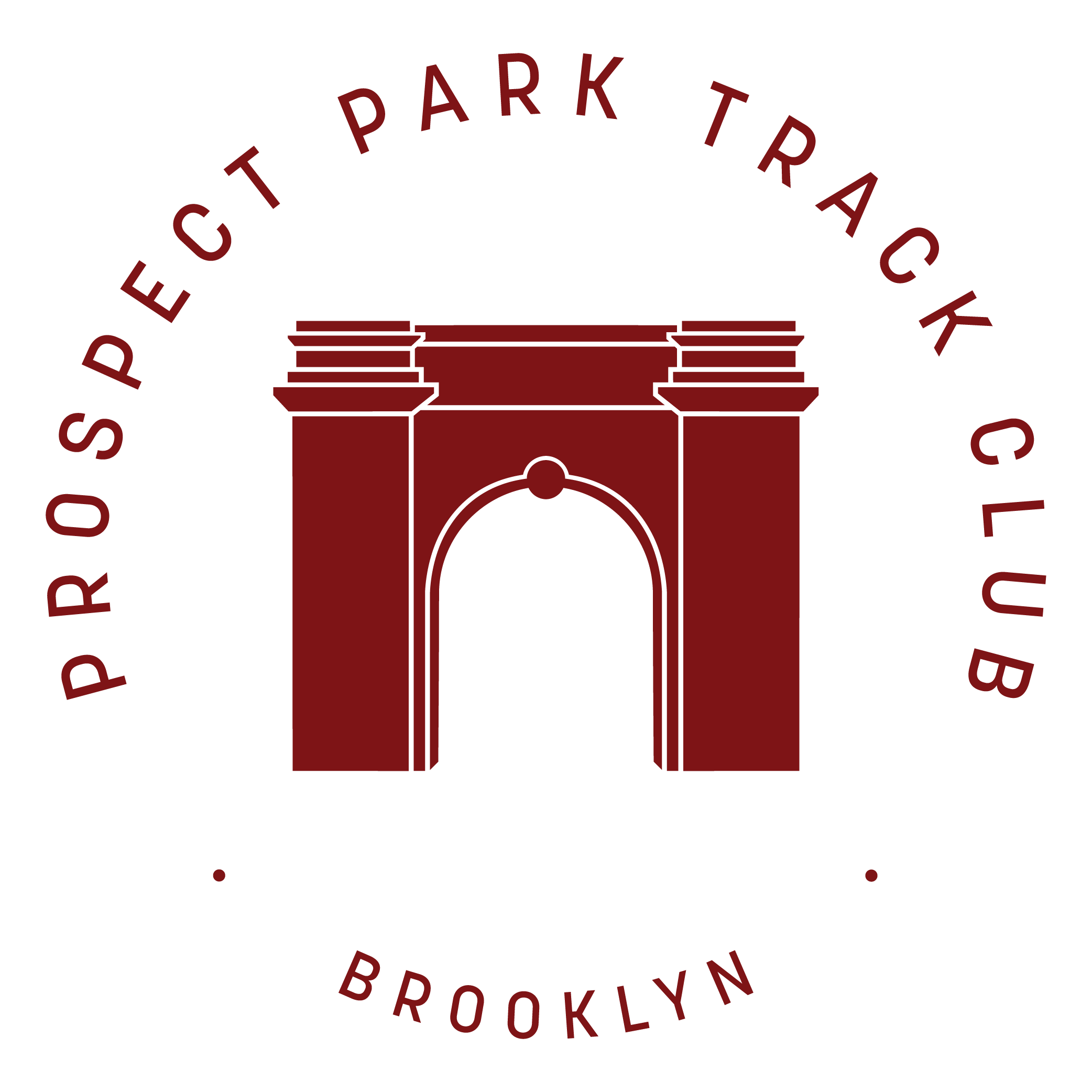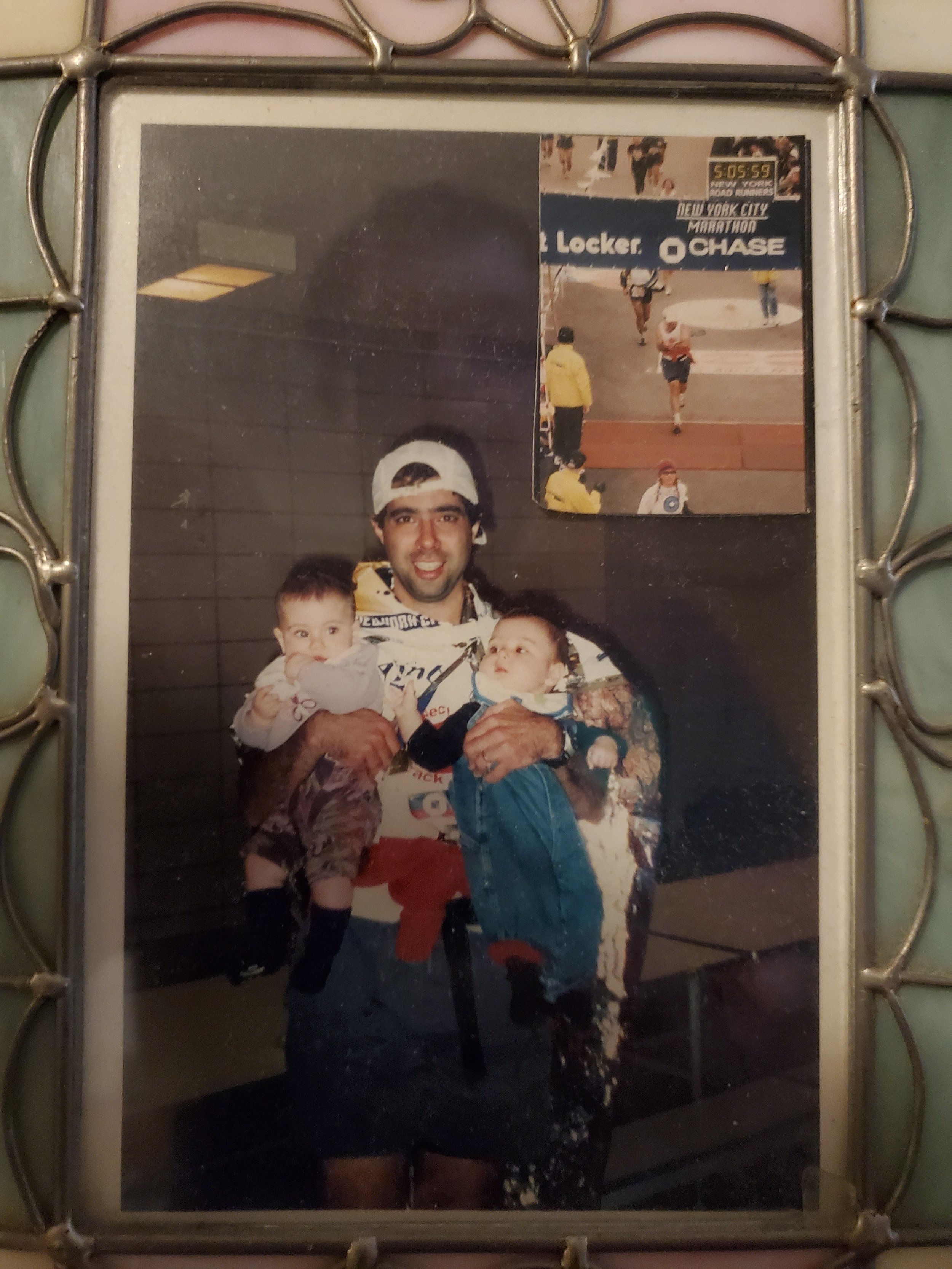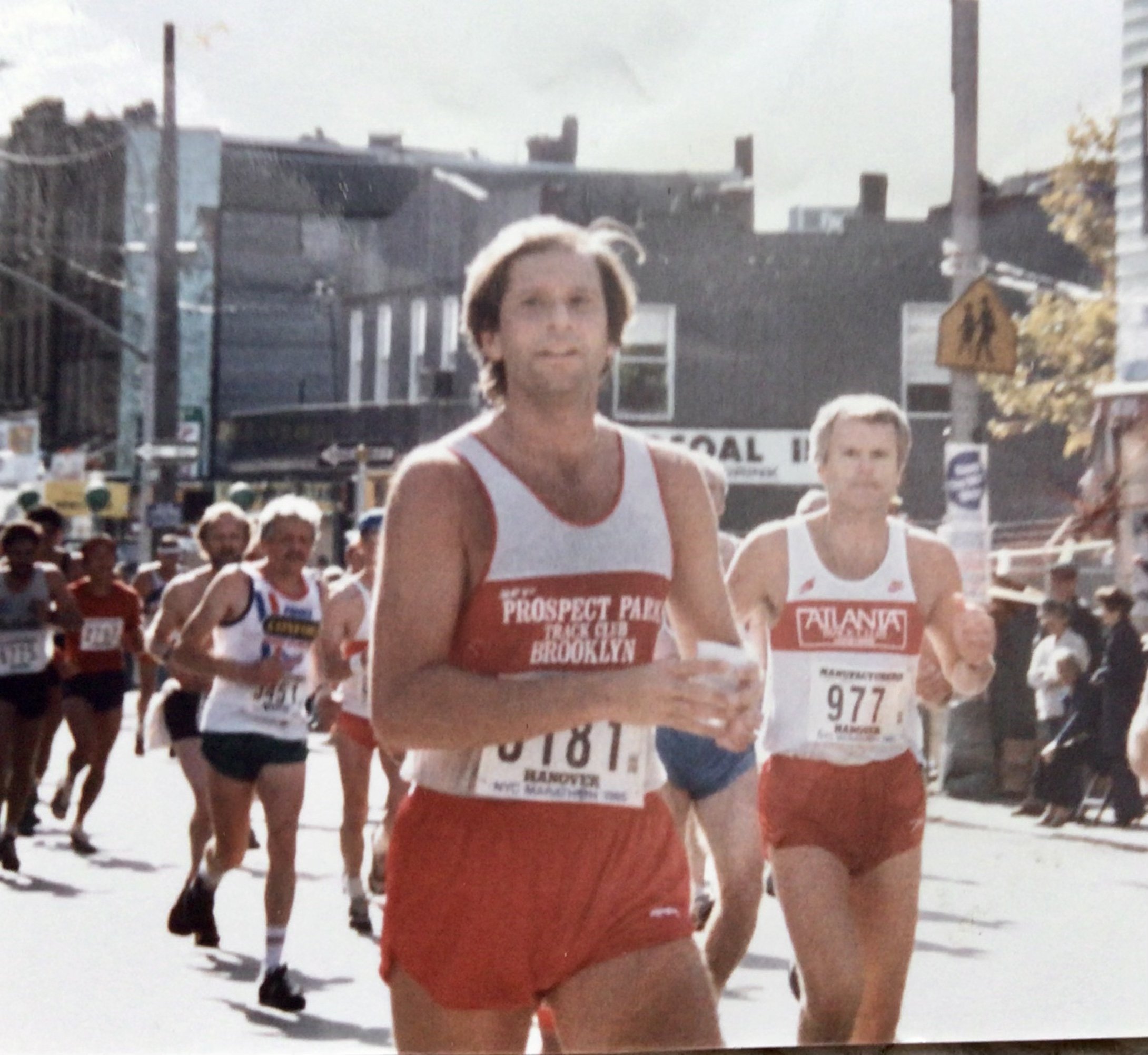Unprecedented Marathons: Recollections from the 2001 NYC Marathon
*Disclaimer: This piece contains language surrounding 9/11 and its aftermath. Please be mindful when reading and we implore you to put your safety and well-being first.
In the midst of this unusual and congested marathon season, uncertainty hangs in the air and frenetic energy pulses through the running world. Every marathon imaginable seems to be jammed into the next several weeks, one weekend the host of many: the Hartford Marathon on October 9th, the Chicago Marathon on October 10th and the Boston Marathon on October 11th. It’s seemingly excessive, but with the unpredictable nature of the current pandemic, race organizers are left with little choice. They are squeezing in rescheduled spring races around the planned fall marathons before the weather- or the virus- make in-person racing unsafe once again.
Protecting runners and the communities hosting these races is paramount and has driven decisions made about race dates. Therefore, precautions and safety guidelines have been established and reinforced. Some changes include: masks donning in the marathon village, personal hydration and fuel belts permitted, extra waves added, time slot registration for the expos, etc. This is not the first time marathon organizers have had to adjust their plans in response to current events.
Tragedy often correlates with adaptation of life and breeds caution. Both the 2013 Boston marathon bombing and the 9/11 attacks led to an increase of security, but subsequent marathons highlighted empowerment and overcoming adversity. The 2001 NYC marathon and the 2014 Boston marathon especially yielded stories of the resilience of people and their city. This year, the 20th anniversary of 9/11 and a time of upheaval, I’ve heard the whisperings of the 2001 NYC marathon, which was held a mere 7.5 weeks after the attacks. Runners recalled hesitancy regarding running the race, but also stories of running with friends, helping strangers, and coming together as a city. A few of our club members who ran the race graciously shared their accounts with us. As we prepare for this next untimely marathon, I invite you all to read their tales for they illustrate inspiring efforts and achievements- not necessarily measured by time but by character.
Christine Boutross (She/Her)
What initially inspired you to run the NYC marathon in 2001?
I had been running marathons since 1985 and 2001 was no different. After 9/11, I questioned if I should run the 2001 NYC Marathon. I decided I would be fine and I didn't want all that training to go to waste.
Had you run a marathon before 2001?
Christine’s headshot
I started my marathon career in 1985. I have only run the New York City Marathon.
What was training like that year?
For me, it was your typical training season from June to November. I also did cross training by swimming with the Red Tide Masters Swim team twice a week.
How did you feel leading up to the race?
I always feel nervous leading up to a run like the marathon. I was determined that I didn't want my nerves to overshadow the run.
Did this year differ from others?
There seem to be more of a camaraderie among participants and spectators.
How did the marathon go?
I finished in about 5 hours plus.
Was there anything that happened or that you saw along the route that was noteworthy?
While waiting on the Verrazano Bridge, I looked up and there were the police standing on the top with rifles. This made me feel safe!
How did you feel after running the marathon?
I was so happy that I ran in 2001. I had a positive experience.
Is there anything else you'd like people to know about the 2001 NYC marathon?
It was an emotional day because it was just 2 months after 9/11.
Michael Ring (He/Him)
What initially inspired you to run the NYC marathon in 2001?
In 1993 I finished New York City and decided to do it every year for the rest of my life. I also started running a spring race to go faster. I was trying to break four hours and I did that in 2000.
What was training like that year?
Training was fine until that Tuesday. Then running over the Brooklyn Bridge or the Manhattan Bridge basically became a no-go. I did a long training run by running down to Coney Island and back towards Park Slope on 1st and 2nd Avenue in Sunset Park. It was October of 2001 and I was on 1st Avenue heading east. This was before gentrification so I was able to run right down the middle of the street on a Sunday. I noticed some concrete barricades ahead. I didn't think they meant anything for me since I wasn't a car. As I got closer a couple of guys got out of the van blocking the opening in the barricades. They were wearing the body armor of an active-duty soldier. One of the guys lifted up his visor and pointed up the street and just said proceed that way. After that I didn't forget that there was a federal prison in Sunset Park.
Michael with his kids after the 2000 NYC marathon, photo in the corner is of Michael finishing that marathon.
How did you feel leading up to the race?
Everybody was walking around cringing. But Halloween changed everything for me. My kids were a year-and-a-half-old and we dressed them up in bear costumes and walked over to 7th Avenue. It was the first time since September 11th that people were laughing and smiling in the street. It kind of prepared me for the marathon.
How did this year differ from others?
A lot of people didn't show up. And they were replaced with first responders who were invited to run for free. So Fort Wadsworth had less international runners and many firemen and policemen and other first responders who were given free entries and weren't really running.
I don't know why but I didn't hang out at Fort Wadsworth with the rest of the Prospect Park Track Club. I remember finding myself sitting with some random strangers and chatting. One of them was from the Netherlands or another Scandinavian country and he told me he just registered for the race because spots opened up. He told me that he visited places that had just been through hardships to support their economy and their people. He said he didn't go to places and donate money or volunteer like he was in the UN. He said he went to places as a tourist so he can spend money and support the economy. And to show the locals that everything's going to be okay. I told him that really meant a lot because less than two months earlier I thought I was going to have to leave New York with my family. I remember I cried a little bit with that stranger.
How did the marathon go?
I have no idea what my time was. I don't think anyone cared. Crossing the Verrazano Bridge was weird because everyone was silent. The crater had just stopped smoking.
Was there anything that happened or that you saw along the route that was noteworthy?
It was the first time in my life I saw our Sharpshooters on rooftops and realized they were protecting me. When I finish the race and walk down towards our reunion school I remember seeing vehicles filled with sand. It was the first time I saw them used to protect people and I was really confused because I thought I missed their weather forecast and it was going to snow.
I also remember finishing with one of our teammates.
How did you feel after running the marathon?
A little bit of normal.
Is there anything else you'd like people to know about the 2001 NYC marathon?
They canceled the Staten Island half because it was like a week or so after 9/11. I remember someone was upset and I had to calm them down and remind them of the bigger picture. Perspective is important.
Barry DancheR (He/HiM)
Barry racing in his PPTC shirt.
I was and still live in San Diego and my family in Brooklyn thought it was too dangerous to fly so soon after 9/11. In spite of my family's concerns, I thought coming back to run the NYC Marathon was the only decision that made sense to me.
Thomas Tobin (He/Him)
2001 was my eighth NYC Marathon finish. This year will be my 25th.
That day I worked midnight until 8AM at Ground Zero on the recovery. At 8AM I took a shower at the Red Cross then walked over to the Staten Island ferry to get to the start. I ran 4:15 or so, slower than usual but I’d been working 7 days a week since 9/11 and hadn’t trained much.
Tom racing circa 2001
I was a member of Ironworkers Local 40 for 42 years, I'm retired now. I worked on dozens of projects over the years, some of my favorites were: Yankee Stadium, Barclays Center, Baruch College, Metropolitan Museum renovation, MOMA, the bike lane on the Manhattan Bridge, and the Winter Garden and American Express buildings in 1984. Both of which were badly damaged on 9/11 and were in the area I was assigned in the recovery effort.
On Sept 11, 2001 I had taken the day off as I had returned from a trip to Italy the night before. My brother-in-law was a fireman on duty 9/11 in 10 House, across the street from the Trade Center. I spent most of the day with my sister, pregnant at the time, who couldn't contact her husband and was sure he had been in one of the towers. Late that afternoon we got word that he was badly injured but alive in a hospital in New Jersey, where they had evacuated many of the injured that day by boat. He had escaped Tower Two just before it collapsed. I went home and a little while later received a phone call from my union asking me to report to the site. Cranes and trucks had been sent right away but they soon found that the buildings’ steel had collapsed in such large pieces that they were too heavy to pick up and put on trucks to clear the area. They now sent huge acetylene torches that could burn the steel beams into smaller pieces that could then be removed. I had a license to operate these torches and was needed immediately. I worked seven days a week, 12 hours a day for the first month, then seven days eight hours for the next few months.
The day of the marathon I'm pretty sure the start time was the same as usual. The ferry was full of runners, probably 8:30 leaving Manhattan. The buses on the Staten Island side got us quickly to Fort Wadsworth.
Tom’s finishing certificate from the 2001 NYC Marathon.
I met a couple from Ireland on the ferry. They had gone to an outdoor cafe after registration and one of their bags with the race number was stolen from under the seat. I spent the little time I had before the race trying to find someone to help them. Security was very strict that morning and no one seemed able to help. Luckily I ran into Warren Ring, the race director for the Van Cortlandt Park cross country races. He promised to help them and I went to the start in time to hear Rudy Guiliani's inspiring speech (how the mighty have fallen, Rudy).
During the race, I got very hungry around the half, probably from being up all night. I started thinking about the GU packs they give out at 18 miles. I took four of them and felt better for a few minutes but then started cramping up from all that sugar. An old NYFD friend, Frank Lindsey, saw me struggling and stayed with me until I loosened up. Then we finished together.
The race itself was like therapy. The first time I'd felt normal in months.
In a couple days, we will once more see the perseverance of this city as New Yorkers take to the streets to run the 50th NYC Marathon. To all those running: I hope that you acknowledge how difficult it is to train during a pandemic. I’m sure at times it felt like you were fighting against the current, walking up a down escalator, but here you all are: at the starting line of the 50th NYC Marathon. For many, you are an inspiration and a symbol of strength to a healing city. Your stories and your training gives us all hope for a tomorrow of more awareness, fight, and love. Good luck and have fun!
To all those cheering and volunteering: you are propelling runners through this race. When they are “hitting the wall” or cannot imagine how to possibly continue your words give them strength.
As a running community and as a city we all move forward together. I hope November 7th is like therapy for you all.
Interview text by: Christine Boutross, Michael Ring, Barry Dancher, and Thomas Tobin
Interviews by: Rachel Harris (she/her) and Rachael DePalma (she/her)
Photos provided by respective interviewees
Thumbnail photo: Marek Stepniowski
Intro & conclusion text by: Rachael DePalma
Edited by: Rachel Harris
Produced by: Rachael DePalma
PPTC is a diverse and supportive team. We want to celebrate the diversity of our club and membership. We welcome and encourage everyone to share their stories with us.





